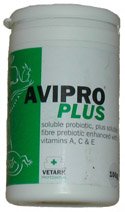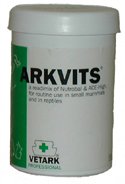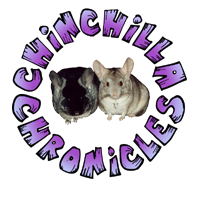 A normal healthy chinchilla does not need supplements added to their diet. Saying this, there are times when a chinchilla will need extra supplementation - generally during times of stress, illness, pregnancy or if a chinchilla has an underlying illness.
A normal healthy chinchilla does not need supplements added to their diet. Saying this, there are times when a chinchilla will need extra supplementation - generally during times of stress, illness, pregnancy or if a chinchilla has an underlying illness.
If you need to supplement a chinchilla during times of ill-health, the supplementation should only continue short term (as a health booster during an episode of need) and should stop as soon as the chinchilla is back to its normal healthy form.
One of the greatest obstacles in maintaining good health in chinchillas is that of improper and inadequate nutrition of the chinchilla's food intake. There are some disease conditions that are caused from a deficiency or lack of some essential elements or nutrients in a chinchilla's diet. The number of chinchillas that are being affected by deficiency conditions is on the increase due to owners providing an unhealthy diet not suitable for chinchillas!
There are two safe supplements that you can add daily to a chinchilla's water system or sprinkled on pellets, as they contain the proper nutrient-ratios and help regulate a chinchilla's sensitive digestive tract. The supplements are especially helpful during times of stress, sickness or a daily basis as a preventative.
 Probiotic Powder (Avipro Plus) - Avipro Plus is a veterinary formulated 'complete' probiotic blend enhanced with vitamins A, C and E. It is the culmination of 15 years research and development. Avipro Plus is a probiotic combination of bacteria, enzymes, electrolytes and vitamins. Its high palatability means it can be added to the drinking water making its use simple.
Probiotic Powder (Avipro Plus) - Avipro Plus is a veterinary formulated 'complete' probiotic blend enhanced with vitamins A, C and E. It is the culmination of 15 years research and development. Avipro Plus is a probiotic combination of bacteria, enzymes, electrolytes and vitamins. Its high palatability means it can be added to the drinking water making its use simple.
The supplement is particularly useful for chinchillas that are undergoing stress or antibiotic treatment during which the normal gut flora may be seriously unbalanced by the stress or treatment, leading to the establishment of inappropriate bacteria many of which can form toxins. The good bacteria in Avipro Plus colonise in the chinchilla’s gut for a short time and assists in encouraging the right conditions to allow the natural gut flora to re-establish itself. The vitamins are included to replace those used within the chinchilla under stressful conditions and to help support the immune system.
Avipro Plus contains:
- Two species of Lactobacillus with Streptococcus faecium, which live for a short time in the gut, helping to stabilise the pH.
- Fructo-oligosaccharide soluble fibre probiotic to encourage the probiotics and make them even more effective. Soluble fibre also improves absorption.
- Vitamin A, C and E to compensate for the losses occurring during stress and to maximize protection.
Avipro Plus can be also be used as a regular routine nutritional aid, 1 scoop per 200ml drinking water in general or for stressed chinchillas use 1 scoop per 100ml.
 Multivitamin and Mineral Mix (Arkvits) - Arkvits is a multivitamin and mineral mix that provides enhanced levels of vitamins A, C, E and calcium to help your chinchilla maintain their levels of essential vitamins and minerals. This supplement also helps young or breeding chinchillas or to combat the effects of stress and disease.
Multivitamin and Mineral Mix (Arkvits) - Arkvits is a multivitamin and mineral mix that provides enhanced levels of vitamins A, C, E and calcium to help your chinchilla maintain their levels of essential vitamins and minerals. This supplement also helps young or breeding chinchillas or to combat the effects of stress and disease.
Once teeth have deformed they will always need veterinary attention, in some cases removal is necessary. The use of Arkvits can help to reduce the incidence of this problem. Created by a readimix of the two key products ACE-HIGH and Nutrobal, this supplement is ideal for routine supplementation of a chinchilla. It is especially valuable during pregnancy and for the breeding animal that is in constant need of calcium and requires ´topping up´ of its vitamin levels. Arkvits should be mixed into food at a rate of 0.1g (1 normal pinch) per kilo of chinchilla being supplemented.
Calcium Deficiency is on the rise due to owners offering food types high in phosphorous, which reduces the amount of calcium absorbed by the chinchilla's body. Calcium is an important factor in nutrition as it is necessary for the deposition of calcium in the bones and teeth of a chinchilla. Calcium metabolism is influenced by the calcium and phosphorus in the food, Vitamin D and possibly other vitamins. 75% of calcium consumed is excreted in the chinchilla's faeces, and 2% is lost in the urine. Calcium deficiency can be exposed in two different manners, which are quite frequent in the domestic chinchilla.
- Tooth Disorders - Calcium deficiency triggers various tooth disorders some of which can be reversed with adequate supplementation of addition calcium. Calcium deficiency in tooth disorders can be exposed by the colour and condition of chinchilla's teeth. Chinchillas should have dark orange teeth. The colouration of the teeth is influenced by the presence of iron in the enamel, which in turn is also influenced by the amount of calcium in the chinchilla's body - the more calcium - the darker orange a chinchilla's teeth will be. White teeth indicate a serious calcium deficiency and a high risk for tooth disorders and light to dark shades of yellow indicate a lack of calcium. In both incidents the commencement of calcium supplementation is needed until teeth pigmentation turns orange-dark orange after which, supplementation can reduce or cease completely.
- Calcium Fits (Disturbed Mineral Metabolism) - This condition may be caused by a disturbed calcium-phosphorus metabolism. It is possible that a deficiency in phosphorus or a wide calcium ratio is more influential as a cause than is lack of calcium itself. A chinchilla suffering calcium fits will express themselves with sudden severe cramping of the muscles. It, like thiamine deficiency, occurs at meal times, but is distinctly different from thiamine deficiency in that there is no shaking or convulsive movements. The chinchilla will be observed to lie with its abdomen flat on the bottom of the cage, the body and legs will become very rigid and cramped-like in appearance and the head will be drawn upwards and backwards. The front limbs will be held very rigidly and away from the body and the hind legs will be stretched very rigidly backwards. The head is usually twisted to one side and the lips are drawn away from the teeth (giving the appearance the chin is suffering from sever, agonizing cramps effecting the muscles in its body). The spasms are only temporary and last a minimal amount of time, after which a chinchilla will usually appear quite normal again.
Pregnant and nursing chinchillas should be offered both calcium and vitamin C as an extra supplementation as their bodies will be depleted by the process of creating or nursing new lives. It is particularly essential to pregnant chinchilla as can provide added protection to the unborn foetuses against tooth disorders whilst the foetus is developing.
Thiamine or Vitamin B1 Deficiency is a condition in which the nerves, controlling the voluntary muscles of the chinchilla, becomes damaged when the chinchilla is kept on diets deficient in thiamine for a long period of time. Thiamine is required in increased quantities during pregnancy, lactation, diarrheal conditions and growth. Carbohydrate metabolism is influenced by thiamine and it has also been found necessary for the syntheses of proteins.
Chinchillas affected by thiamine deficiency show an in-coordination of their movements. The affected chinchilla is unthrifty, nervous and easily excited especially around feeding times. During this time, a chinchilla deficient in thiamine will present a typically nervous chinchilla with convulsive-like reactions. The limbs and body will suddenly start to tremble or shake and although the chinchilla is able to move about the cage it is unable to control its movements. The chinchilla will show difficulty in getting 'in and out' of the nest-box or it may be observed leaning against the side of the cage with its body trembling. After a short period of time, this fit (convulsive-like spasm) will disappear and the chinchilla will be able to run about or commence eating as if nothing had happened.
If nothing is done in the way of supplying thiamine to the chinchilla or correcting the deficiency in the diet, the condition will become serious. Cramps or paralysis of the legs will develop, first in one hind leg and then the front limbs will become paralyzed. When the condition has reached this stage, other medical conditions intervene, which will cause the death of a chinchilla before death of thiamine deficiency takes place.
Chinchillas showing thiamine deficiency will need large doses of a Vitamin B complex, which should continue for at least a period of 4-5 weeks or until the problem has resolved. Supplying such doses of Vitamin B complex to a chinchilla must be done under the supervision of a veterinary surgeon and the chinchilla's health must be constantly monitored during the time of supplementation.
Thiamine can be found in good quality hay but be warned the quality will diminish over time and much quicker if not stored in the correct manner.
NOTE - Neither thiamine deficiency nor calcium deficiency is seen affecting chinchillas where properly balanced diets are maintained!
Vitamin C can be added daily as this is a water soluble vitamin and any excess will be urinated out of the chinchilla's body. It helps because it strengthens the connective tissue around the chinchilla's open-rooted teeth and strengthens the immune system. Pellets can be dusted with Rose Hip Powder as this adds a small amount of vitamin C and also sweetens the taste, alternatively, Arkvits or Avipro Plus added to the water system will contain enough Vitamin C for a chinchilla's daily needs.
There are many more nutrients essential to a chinchilla on a daily basis and these are further discussed in Minerals And The Relation To Chinchilla Disease and Vitamins And The Relation To Chinchilla Disease. These books are fantastic to include in any chinchilla library and go into further details on the exact facts about each mineral and vitamin, the benefits, what diseases/illnesses are associated with a specific deficiency and a source for prevention. An excellent source of information for the serious chin owner that wants to provide optimum health and prevent the onset of disease caused by a lack of vital nutrients.
Further Reading Relating To Chinchilla Supplementation:
Chinchilla A-Z Health & Sickness Bible, Chinchilla Health, Home Remedies And Safe Medications For Chinchillas, Illness, Sickness & Disease, Nutrition, Pregnancy.


 A normal healthy chinchilla does not need supplements added to their diet. Saying this, there are times when a chinchilla will need extra supplementation - generally during times of stress, illness, pregnancy or if a chinchilla has an underlying illness.
A normal healthy chinchilla does not need supplements added to their diet. Saying this, there are times when a chinchilla will need extra supplementation - generally during times of stress, illness, pregnancy or if a chinchilla has an underlying illness. Probiotic Powder (Avipro Plus) - Avipro Plus is a veterinary formulated 'complete' probiotic blend enhanced with vitamins A, C and E. It is the culmination of 15 years research and development. Avipro Plus is a probiotic combination of bacteria, enzymes, electrolytes and vitamins. Its high palatability means it can be added to the drinking water making its use simple.
Probiotic Powder (Avipro Plus) - Avipro Plus is a veterinary formulated 'complete' probiotic blend enhanced with vitamins A, C and E. It is the culmination of 15 years research and development. Avipro Plus is a probiotic combination of bacteria, enzymes, electrolytes and vitamins. Its high palatability means it can be added to the drinking water making its use simple. Multivitamin and Mineral Mix (Arkvits) - Arkvits is a multivitamin and mineral mix that provides enhanced levels of vitamins A, C, E and calcium to help your chinchilla maintain their levels of essential vitamins and minerals. This supplement also helps young or breeding chinchillas or to combat the effects of stress and disease.
Multivitamin and Mineral Mix (Arkvits) - Arkvits is a multivitamin and mineral mix that provides enhanced levels of vitamins A, C, E and calcium to help your chinchilla maintain their levels of essential vitamins and minerals. This supplement also helps young or breeding chinchillas or to combat the effects of stress and disease.